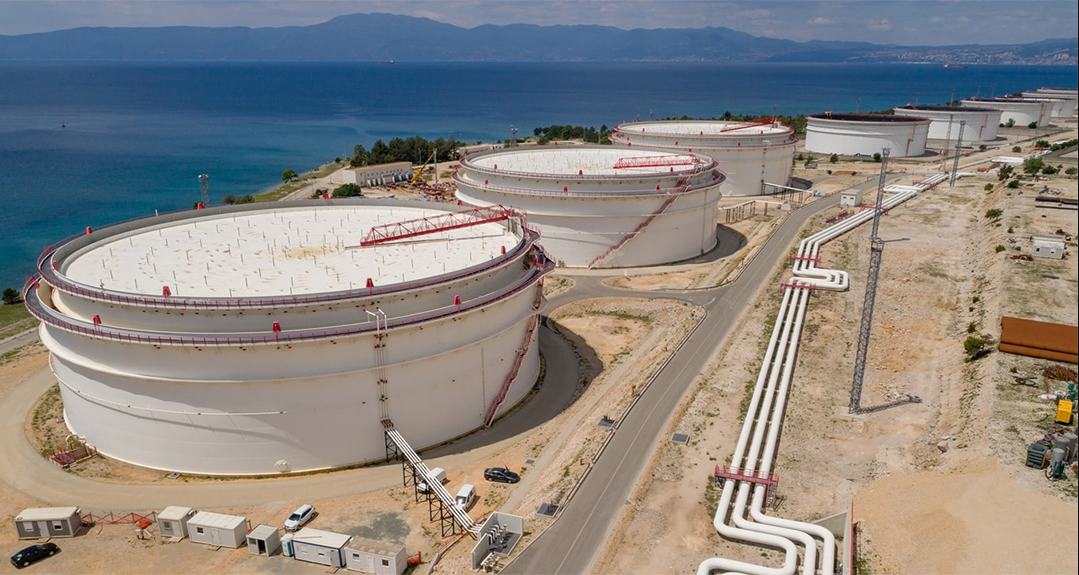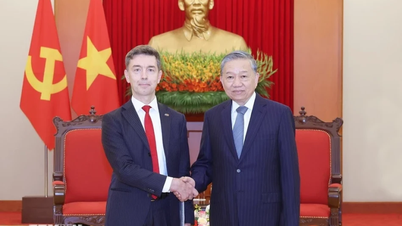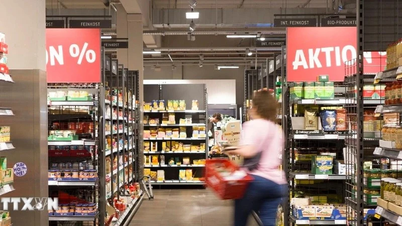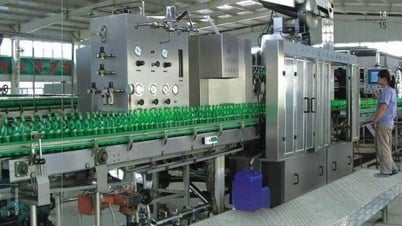Slovakia and Hungary have rejected a proposal by the European Union's executive body to replace the flow of Russian oil blocked by Ukraine with an alternative route through Croatia, saying Croatia is not a "reliable" transit point.
Supplies from Lukoil through Ukraine have been halted since July after Kiev blacklisted Russia's largest private oil exporter and imposed a ban on the Druzhba pipeline, which transports oil from Russia to Eastern Europe.
Hungary and Slovakia then asked the European Commission (EC) to intervene and mediate, saying Ukraine's move threatened their supply security.
In the latest development in the case, Budapest and Bratislava on August 2 rejected the EC's proposal to use spare capacity on the JANAF Adriatic pipeline in Croatia to supply non-Russian oil to Hungary and Slovakia.
This proposal by Brussels is aimed at diversifying oil import sources and reducing the dependence of some member states on Russian oil amid ongoing geopolitical tensions.

JANAF Adriatic pipeline oil storage and transportation facility in Croatia. Photo: The Gaze
“Croatia is simply not a reliable country for oil transit,” said Hungarian Foreign Minister Péter Szijjártó. “The cost of oil transit in Croatia has increased fivefold since the Russia-Ukraine conflict broke out.”
Mr Szijjártó's comments drew a strong reaction from Croatia, sparking a diplomatic row.
Croatian Foreign Minister Gordan Grlić Radman expressed disappointment at the unexpected criticism from a neighboring country with which Croatia has sought to maintain friendly relations despite previous unfriendly actions.
In response to Hungary's concerns, Slovakia – which has been receiving some of its oil via the JANAF Adriatic pipeline to the Slovnaft refinery – said on August 2 that it had received an offer from the Croatian government to secure oil supplies.
But Slovakian Foreign Minister Juraj Blanár said things remained uncertain given questions about costs and potential supply volumes, noting that "nobody knows the specifics yet".
Both Hungary and Slovakia have expressed their desire for the EC to “step in” and force Ukraine to restore the full flow of Russian oil. At the same time, Mr. Blanár said that Slovakia is also looking for alternative solutions if Brussels does not act.
After Russia launched a special military operation in Ukraine in early 2022, the EU banned oil imports into its member states in an attempt to wean them off Russian fossil fuels, but exempted Hungary, Slovakia and the Czech Republic to give them time to find alternative routes and sources of supply.
Despite protracted negotiations over transit fees, Croatia's JANAF and Hungary's MOL signed a one-year contract in May 2023, on a deal to transport and store 2.9 million tonnes of crude oil on the Adriatic pipeline to MOL's Hungarian and Slovak refineries.
Hungary also complained on August 2 that Croatia had failed to invest in capacity building and had never substantiated the figures it gave for the maximum transit capacity of the Adriatic pipeline.
JANAF denied the allegations in a statement, saying it has been continuously investing in its transportation-storage system. The company said it had tested its transport capacity on the route towards Hungary together with MOL and demonstrated that the route could transport 1.2 million tonnes of crude oil per month.
“JANAF is technically and organizationally ready to supply sufficient quantities of oil to refineries in Central Europe to operate at full capacity. That is why we hope that we will find a satisfactory solution to continue our long-term partnership through open negotiations and cooperation,” the company said.
Minh Duc (According to Euractiv, EU Today)
Source: https://www.nguoiduatin.vn/dien-bien-moi-vu-ukraine-chan-lukoil-trung-chuyen-dau-nga-sang-2-nuoc-eu-204240804152355586.htm


![[Photo] Readers line up to visit the photo exhibition and receive a special publication commemorating the 135th birthday of President Ho Chi Minh at Nhan Dan Newspaper](https://vphoto.vietnam.vn/thumb/1200x675/vietnam/resource/IMAGE/2025/5/17/85b3197fc6bd43e6a9ee4db15101005b)



![[Photo] Prime Minister Pham Minh Chinh chairs meeting on science and technology development](https://vphoto.vietnam.vn/thumb/1200x675/vietnam/resource/IMAGE/2025/5/17/ae80dd74c384439789b12013c738a045)
![[Photo] More than 17,000 candidates participate in the 2025 SPT Competency Assessment Test of Hanoi National University of Education](https://vphoto.vietnam.vn/thumb/1200x675/vietnam/resource/IMAGE/2025/5/17/e538d9a1636c407cbb211b314e6303fd)



























![[Photo] Nearly 3,000 students moved by stories about soldiers](https://vphoto.vietnam.vn/thumb/1200x675/vietnam/resource/IMAGE/2025/5/17/21da57c8241e42438b423eaa37215e0e)





































































Comment (0)